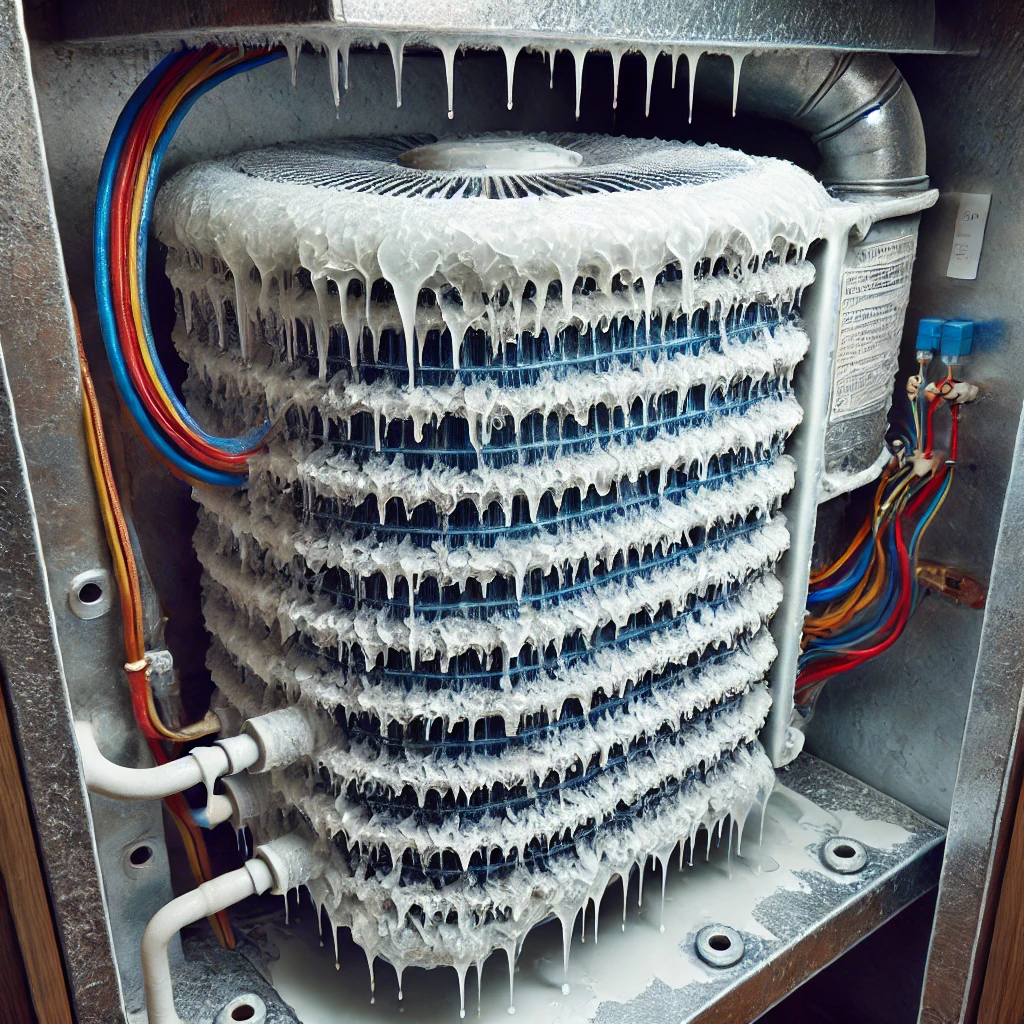A frozen air conditioner coil is a common but frustrating problem, especially during hot Miami summers. If your AC coil is frozen, it means your system isn’t working efficiently—and it might stop cooling altogether. At ZapFixers, we know how inconvenient this issue can be, so let’s dive into the causes, signs, and solutions. We’ll also give you some tips to prevent it from happening in the future.
What is a Frozen AC Coil?
The evaporator coil in your air conditioner absorbs heat from the air, allowing the system to cool your home. When something goes wrong, the coil’s temperature can drop too low, causing moisture to freeze on the coil’s surface. This ice buildup reduces airflow and cooling efficiency, leading to potential breakdowns.
Signs of a Frozen AC Coil
- Reduced Airflow: Weak or non-existent airflow from your vents.
- Warm Air Blowing: Even with the AC running, the air feels warm.
- Ice Visible on Copper Lines: Ice on the refrigerant line near the indoor unit is a tell-tale sign.
- Unusually High Energy Bills: A struggling AC system consumes more electricity.
- Water Leaks Around the Unit: When the ice melts, you might notice puddles around the indoor unit.
What Causes an AC Coil to Freeze?
- Dirty Air Filters
A clogged filter blocks airflow, preventing warm air from reaching the coil. Without enough warm air, the coil freezes.
Solution: Replace your air filter every 1-3 months, especially in peak cooling seasons.
- Low Refrigerant Levels
Low refrigerant can cause pressure drops in the coil, making it too cold and leading to freezing.
Solution: Call a licensed technician to inspect the refrigerant level and repair any leaks.
- Blocked Air Ducts or Vents
Blocked or closed vents restrict airflow, which can make the evaporator coil freeze over.
Solution: Make sure all vents are open and clean to allow air circulation.
- Fan or Blower Problems
If the blower motor isn’t working correctly, the AC can’t push enough air through the system, resulting in a frozen coil.
Solution: A professional technician can inspect and repair the fan motor.
- Thermostat Issues
Setting the thermostat too low or a faulty thermostat can cause your AC to overwork, leading to freezing.
Solution: Ensure the thermostat is working properly and set it to a comfortable, moderate temperature.
- Dirty Evaporator Coil
Dust and grime on the coil prevent proper heat absorption, leading to frost buildup.
Solution: Schedule regular maintenance to keep your evaporator coil clean.
How to Fix a Frozen AC Coil
- Turn Off the AC: Stop running the system to prevent further damage.
- Thaw the Coil: Allow the coil to defrost naturally, or switch to fan-only mode to speed up the process.
- Check the Air Filter: Replace the filter if it’s dirty or clogged.
- Inspect Refrigerant Levels: Call a professional if you suspect low refrigerant.
- Schedule a Professional Inspection: If the issue persists, it’s time to contact ZapFixers for expert help.
How to Prevent Your AC Coil from Freezing
- Regular Filter Changes: Keep airflow unrestricted with clean filters.
- Clear Vents and Ducts: Ensure vents are open and not blocked by furniture.
- Routine Maintenance: Schedule annual tune-ups to keep your system in top shape.
- Monitor Thermostat Settings: Don’t set your thermostat too low to avoid overcooling.
Why It’s Important to Address a Frozen Coil Quickly
Ignoring a frozen AC coil can lead to:
- Compressor Damage: The compressor could burn out, leading to expensive repairs.
- Reduced System Lifespan: Frequent freezing stresses the AC, causing premature wear and tear.
- High Energy Bills: A malfunctioning AC consumes more electricity.
- Discomfort at Home: Without proper cooling, your home can quickly become unbearable in Miami’s heat.
